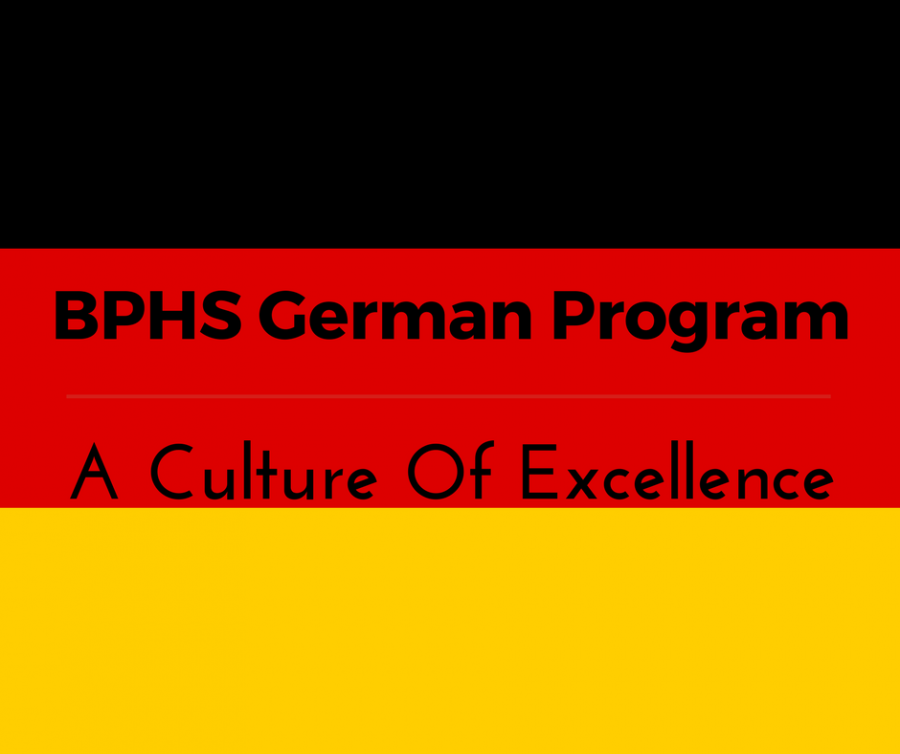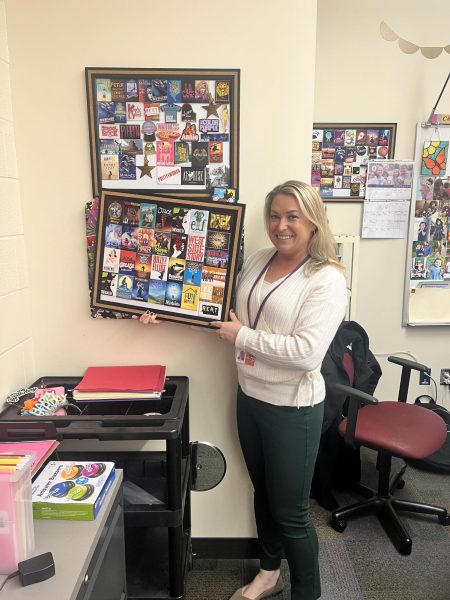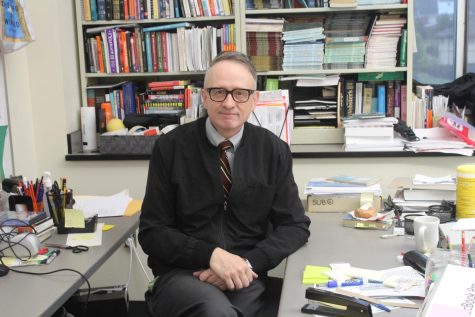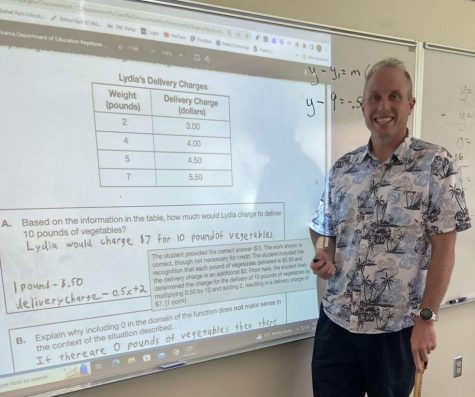BPHS German Program: “a culture of excellence”
Bethel Park German students create a “culture of excellence,” consistently receiving top scores at the National Level.
The BPHS German Program, which has been in place for more than 50 years, continuously turns out some of the brightest and most successful German students in the country.
For many years, BP German students have scored very highly on the national German exam, and this year was no different.
On the Level 3 exam, sophomores Jerry Varghese and Sonja Hebestreit earned Gold Awards for scoring in the 90th percentile or higher nationally. Jerry’s score in the 94th percentile ranked 6th out of 177 students who took the exam in Western PA and West Virginia. Sonja’s score, in the 90th percentile, placed 7th in the region.
Junior Brody Flowers and sophomore Alec Wilson earned Bronze Awards with scores in the 70th percentile or higher.
Earning Honorable Mention on the exam were junior Quinn Manning and sophomores Abby Kauric, Will Coplan, Evan Welsh, Holly Troesch, Katelyn Marcovecchio, Antonio Fontana and Thorin Typus.
On the Level 4 Exam, five of the top ten scores from among the 120 students who took the exam in Western PA and West Virginia were those of BPHS students.
Seniors Brendan Troesch (99), Ryan Pfab (92) and Ethan Tabler (92), and juniors Jacob Cunningham (90) and Noah Voskamp (90) all earned Gold Awards for scoring in the 90th percentile or higher nationally. Brendan’s score was the top score in the Western PA/WV region, while Ryan and Ethan’s scores tied for 5th and Jacob’s and Noah’s scores tied for 8th.
Earning Silver Awards for scoring in the 80th percentile or higher nationally were seniors Jeff Hoffman and Jen Klara, as well as juniors Emily Clarvit and Connor Robinette.
Bronze Awards (70th percentile or higher) went to juniors Brooke Worrall and Evan Aronhalt.
Earning Honorable Mention were seniors Jonathan Lucchitti, Josh Sholder and Casey Hammer.
Any student who earned a gold level award is eligible to compete for scholarships to travel and study in Germany this summer.
When asked his opinion on why the German students have such high levels of success, BPHS German Teacher Mr. Tobias said he believes the culture of the German program is one of the greatest contributors to his students’ success.
In an interview, Tobias explained that German students are often in classes with the same students every single year. This similarity in classmates helps to promote a more devoted, understanding, and hardworking classroom environment.
Tobias expanded saying, with only one German teacher at the high school, students are exposed to the same teaching style year after year. This means students do not experience gaps in information if something was not covered the year before, and knows exactly what to expect from the class. Tobias says these qualities of the program are what help to make the German Program a “culture of excellence.”
Unlike other languages offered at the high school, German classes are offered during very limited times of the day– some classes only being offered once a day. Unfortunately, this results in some students being unable to continue in the program due to conflicts with other classes.
Several German students were asked what their favorite part of the German Program is, and almost unanimously the students responded saying their favorite part of the German Program is Mr. ( or as his students would call him, Herr) Tobias’ engaging style of teaching.
According to studying-in-germany.org, German is the most commonly spoken language in Europe, surpassing both English and French.
As a leader in the field of engineering, German is an incredibly important skill for any prospective engineer entering college.
German is an important language in the fields of philosophy, science, history, literature and art. People looking to pursue graduate degrees in these fields often find that being able to read German is a prerequisite.
Even if you don’t apply your German skills to such high-minded activities as master’s degrees and doctorates, learning another language is simply good for your brain. Studying a second language has been scientifically proven to improve memory, problem-solving skills, abstract reasoning, empathy and even postpones the onset of dementia.
German is an easier language for native English speakers to learn. According to babble.com, an online language instruction course, the English language originally evolved from German and the two languages still bear many similarities.

BPHS senior Greydon Tomkowitz is the current Editor-In-Chief of Hawk Eye, a position he has served in for three years.
Greydon joined the newspaper...











